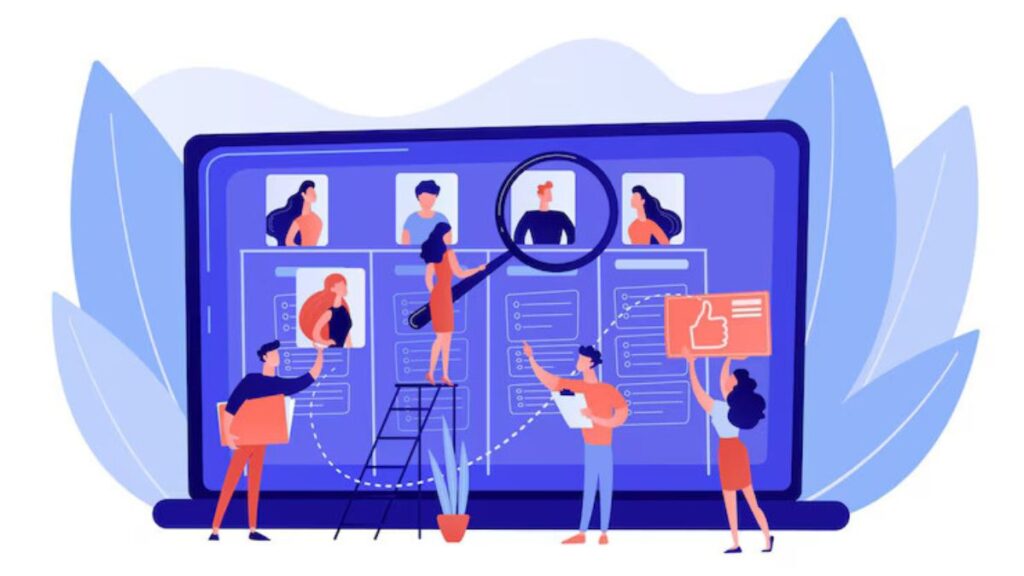Hiring top technical talent is more competitive than ever. As demand for skilled software engineers, data scientists, and DevOps professionals continues to rise, companies are under pressure to shorten their hiring cycles and improve the accuracy of their candidate evaluations. In response, many are turning to technical interview as a service—a scalable, expert-led approach to conducting technical interviews using external professionals and intelligent platforms.
In this article, we explore the leading technical interview as a service platforms in 2025, key benefits, features to look for, and how companies can use them to build stronger tech teams while saving time and resources.
What Is Technical Interview as a Service?
Technical interview as a service is a recruitment solution that outsources the technical evaluation portion of the hiring process to trained experts or platforms. Instead of relying solely on in-house developers or engineers to screen candidates, companies engage third-party professionals who conduct standardized, structured interviews and provide comprehensive feedback.
This model ensures that candidates are assessed fairly and accurately based on real-world technical skills, coding abilities, and problem-solving capabilities. It also frees up internal teams to focus on core business activities, accelerating hiring without compromising quality.
Why Companies Are Embracing Technical Interview as a Service
The traditional approach to technical hiring is time-consuming, inconsistent, and often biased. Engineers are pulled from their primary roles to conduct interviews, which can slow down product development and result in interviewer fatigue. Technical interview as a service platforms address these challenges by offering:
- Speed – On-demand interviews mean faster candidate evaluation.
- Consistency – Standardized interview formats reduce variability in assessments.
- Expertise – Interviews are conducted by domain-specific professionals.
- Scalability – Easily handle large volumes during campus or bulk hiring drives.
Many companies also adopt this model to ensure a better candidate experience. Professional interviewers are trained to ask relevant, role-specific questions that align with industry standards and treat candidates with respect—leading to stronger employer branding.
Best Practices for Companies using technical interview as a service include customizing interview templates, providing timely feedback, and integrating reports into your ATS for seamless review.
Key Features of a Great Technical Interview as a Service Platform
When evaluating providers, it’s important to look for platforms that offer the following capabilities:
1. On-Demand Technical Experts
Access to certified interviewers with deep experience in areas such as frontend/backend development, machine learning, DevOps, cloud computing, and cybersecurity.
2. Live Coding Environments
Real-time coding challenges using collaborative editors that simulate real-world problem solving.
3. Video Interviewing Tools
Built-in video calling capabilities for live interaction, supported by whiteboarding and screen-sharing tools.
4. Automated Evaluation Reports
Detailed candidate performance analytics, including strengths, weaknesses, and readiness for the next stage.
5. Customizable Interview Frameworks
Companies can tailor interview content to match specific job descriptions and technical stacks.
6. Integration with ATS and HR Tools
Seamless flow of interview data into Applicant Tracking Systems or CRM platforms, reducing manual effort.
Top Technical Interview as a Service Platforms in 2025
Here are some of the best platforms currently helping companies streamline their technical hiring process:
1. Karat
A pioneer in this space, Karat provides live technical interviews conducted by seasoned engineers. It’s used by global brands like Robinhood and Indeed for scalable, structured tech hiring.
- Live, role-specific interviews
- In-depth evaluation reports
- Excellent candidate experience
2. FloCareer
FloCareer offers a large network of trained interviewers across technical and non-technical roles. It is popular in India and the U.S. for its affordable pricing and fast turnaround.
- Interviews in over 150 technical domains
- Video recordings and analytics
- Interviewer certification program
3. InterviewVector
Focused on deep technical evaluations, InterviewVector matches candidates with domain-specific experts and supports end-to-end evaluation with clear scorecards.
- Backend, frontend, DevOps, and QA support
- Tailored interviews for startups and enterprise teams
- Real-time performance dashboards
4. Intervue.io
Ideal for fast-paced startups, Intervue.io offers a collaborative coding platform and on-demand interview scheduling with expert engineers.
- Code pairing and live debugging support
- Interview templates for different stacks
- Integration with Slack and Google Calendar
5. HackerRank Interview Services
Backed by one of the largest developer assessment platforms, HackerRank offers structured live technical interviews and post-interview analytics.
- In-browser IDE and auto-scoring
- Real-world project challenges
- Seamless integration with HackerRank tests
6. TechScreen
TechScreen allows recruiters to conduct technical interviews even without a technical background, thanks to guided scripts and intelligent prompts.
- Best for non-tech recruiters
- AI-powered question flow
- Suitable for screening junior-level candidates
Benefits of Using Technical Interview as a Service
Using technical interview as a service provides numerous benefits:
- Reduces Internal Workload – Your engineers stay focused on development, not interviewing.
- Improves Hire Quality – Structured evaluations lead to better hiring decisions.
- Shortens Hiring Cycles – Get faster feedback and move candidates through the pipeline more quickly.
- Enhances Diversity and Inclusion – Standardized questions help reduce bias.
- Delivers a Better Candidate Experience – Professional interviewers foster a positive brand impression.
How to Choose the Right Platform
When selecting a platform, consider the following:
- Hiring Volume – Choose a scalable solution that can meet both current and future hiring needs.
- Role Specialization – Ensure the platform has expertise in your required technical areas.
- Customization – Look for platforms that let you tailor questions and workflows.
- Integration – Verify compatibility with your current ATS and HR software.
- Support and Training – Opt for providers that offer training sessions and responsive customer service.
Future Trends in Technical Interview as a Service
As AI and automation continue to evolve, the future of technical interviewing is becoming more dynamic:
- AI-Based Interview Scoring – Intelligent scoring systems that analyze coding patterns and behavior.
- Multilingual Support – Platforms expanding language options for global hiring.
- Soft Skills Integration – Evaluating communication and collaboration alongside technical skills.
- Interview Coaching Modules – Helping candidates prepare better while maintaining fairness.
These developments will continue to refine how companies identify top-tier talent in a competitive market.
Conclusion
In 2025, technical interview as a service is no longer a luxury—it’s a necessity for forward-thinking companies looking to hire efficiently, accurately, and at scale. With expert-led evaluations, detailed analytics, and customizable workflows, these platforms empower hiring managers to make smarter, faster decisions without overwhelming internal teams.
Whether you’re hiring for five roles or fifty, integrating a technical interview as a service platform can significantly elevate the quality of your hiring process and ensure your engineering teams are built with the best talent available.






